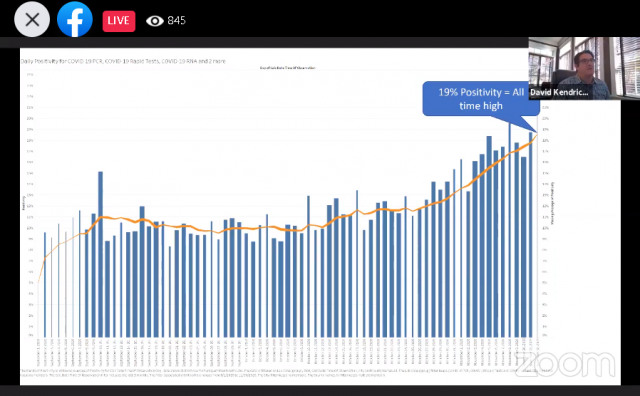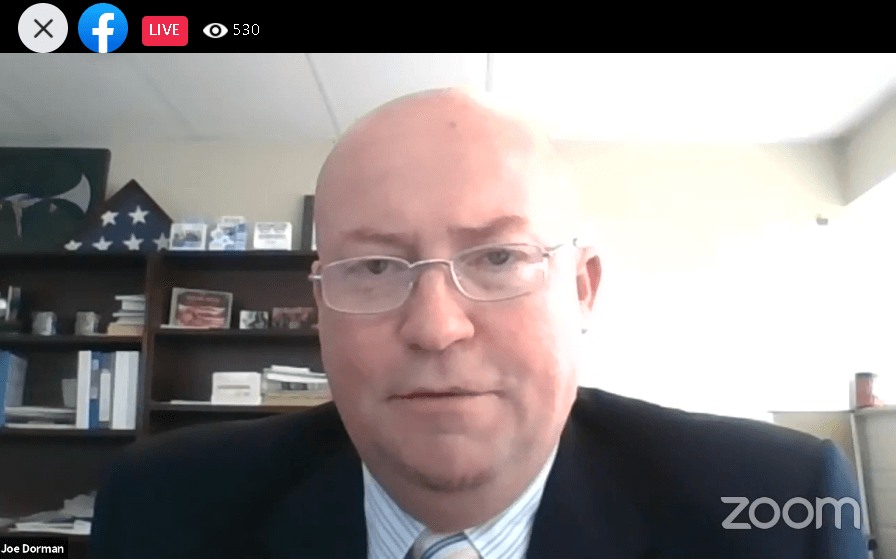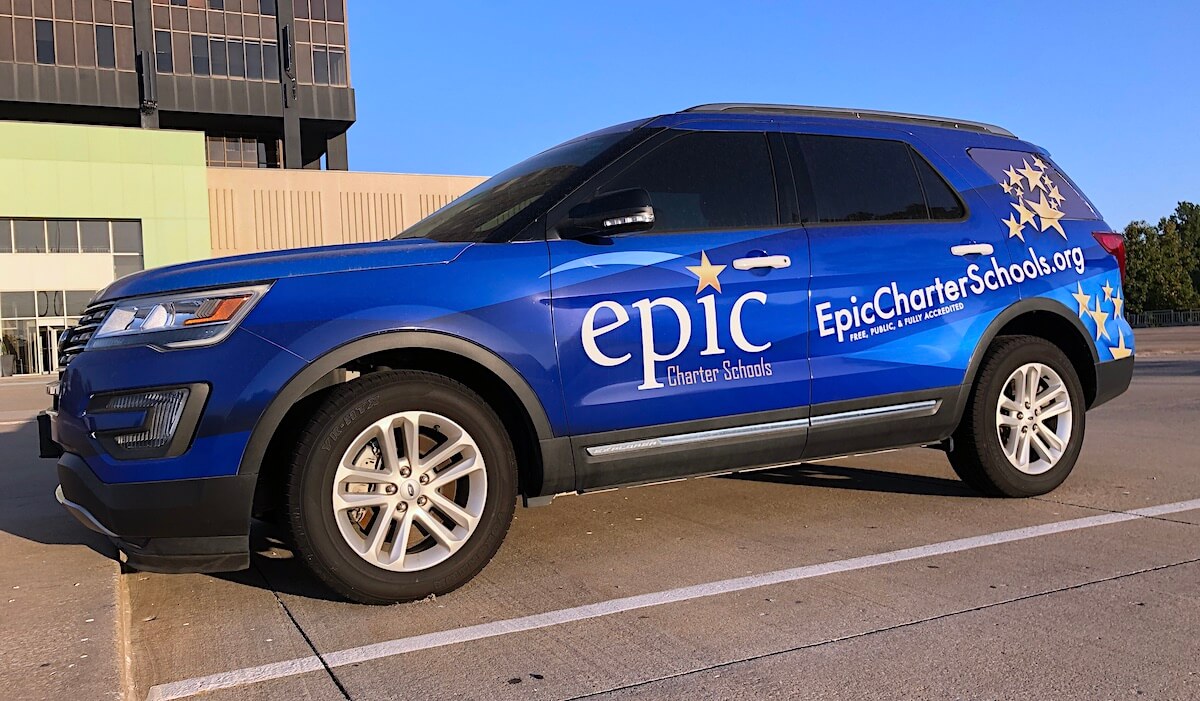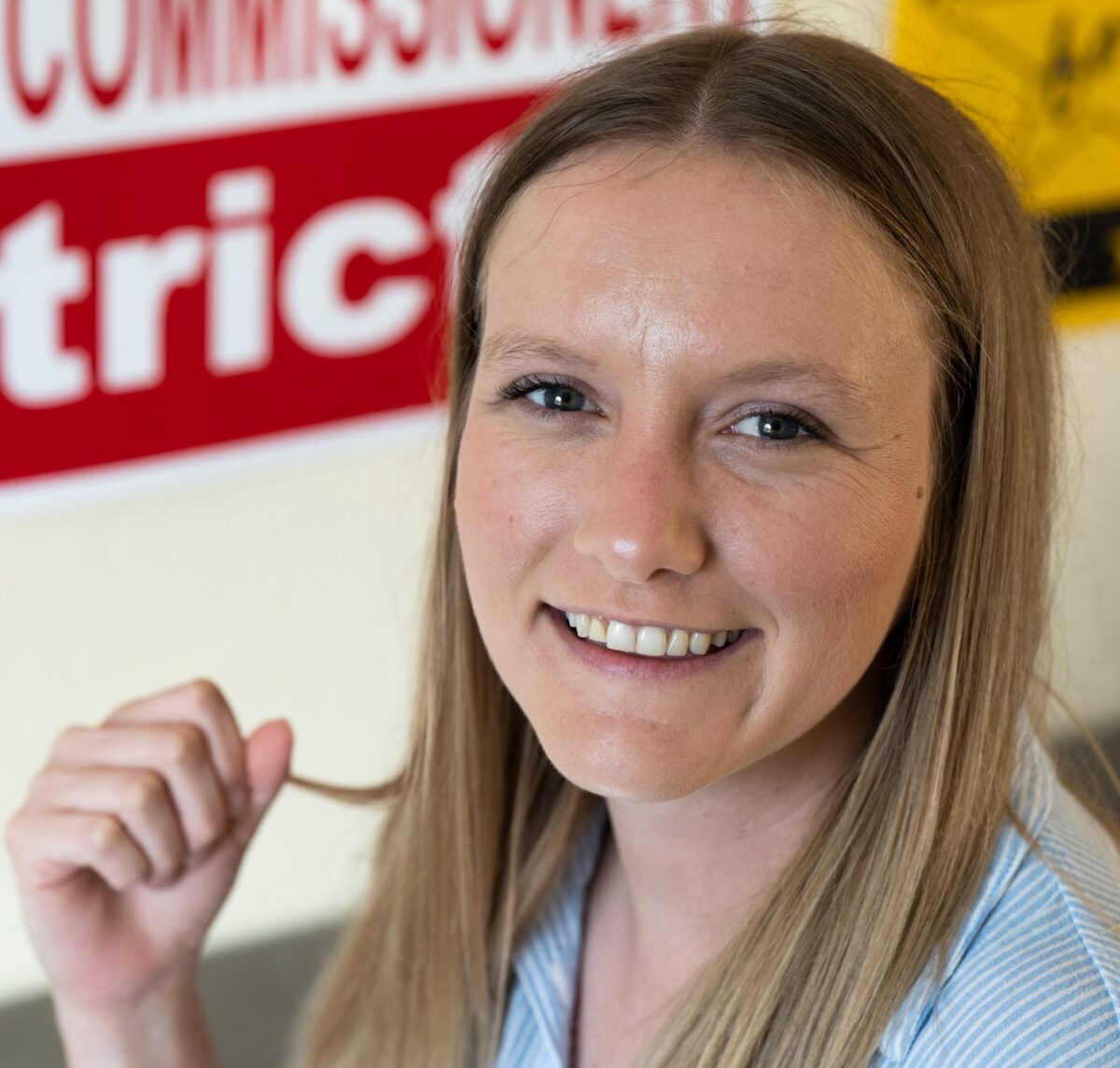
During a Thursday special meeting that lasted more than nine hours, the State Board of Education unanimously approved a resolution to continue to strongly encourage, but not require, districts to require masks in schools.
“While it is no secret that I have very much supported a school statewide mask requirement, I believe we all understand the gravity of the crisis at hand,” Oklahoma State Superintendent of Public Instruction Joy Hofmeister said. “The health and safety of students and school personnel remains a pressing priority. The State Board of Education implores Oklahoma school boards and district superintendents to require students and staff to wear face masks on public school campuses, within district vehicles and especially when in classrooms or other large gatherings.”
A community coalition, Masks Are Saving Kids, has been advocating for the State Board to issue required masking policies for school districts in the state.
Joe Dorman, CEO of the Oklahoma Institute for Child Advocacy, spoke during the public comment section of the meeting and asked the board to reconsider their July 23 vote that made masks just a recommendation in schools.
“We’re trying encourage a better policy statewide for masking in schools,” Dorman said. “Our coalition feels the only way we’re going to see schools continue to open and remain open is that policy in place that will do what it can to keep people safe.”

The coalition, comprised of community organizations like OICA and the Oklahoma Education Association, has been pushing for the school mask mandate in order to prevent the spread of COVID-19 through the use of billboards in the Tulsa and Oklahoma City areas, along with an online petition.
As of Thursday, the Oklahoma State Department of Health was reporting 21,720 active COVID cases.
“We’ve been told that 20 percent of school districts in the state do not have a mask policy,” Dorman said. “We would like to see that change whether it be from the local school boards, and I’m speaking to local board members too as well as the state board. Please do what you can to ensure the safety of your students, your teachers, your personnel and those families at home.”
Co-chairman of the Oklahoma Academy of Family Physicians legislative committee, Dr. Steven Crawford, also spoke in favor of mandated mask policies in schools.
“We do know now that masks absolutely make a difference in diminishing the transmission of this infection,” Crawford said. “We need to be advocating so our schools can open safely.”
He said of the three key elements of COVID prevention — wearing a mask, washing hands and observing six feet of social distancing — he believes wearing a mask is the most important in preventing the virus spread.
“I fear that if we don’t do this our schools will need to close because of increasing infection, not only of the students, but of the teachers and all of the other personnel that are necessary to run a school,” Crawford said.
Required masking policies will continue to be at the discretion of individual school districts.
“All along, we have highly recommended that local districts take COVID-19 incredibly seriously and utilize their best judgment knowing their local communities and their local populations to put in place guidelines and regulations that make the most sense for their population,” board member Jennifer Monies said. “That continues to be what we’re saying today.”
Dorman said he was disappointed by the board’s decision to continue issuing these protocols as recommendations rather than requirements, calling school shutdowns owing to rising COVID numbers a matter of “when” not “if.”
“I’m thoroughly disappointed that there was a unanimous vote to continue an ineffective policy,” Dorman said. “The mask coalition obviously sees that our work is important and we’re going to have to redouble our efforts and help raise awareness. We’re going to continue to spread the message to local school boards that they need to take this seriously.”
Oklahoma Education Association President Alicia Priest released a statement in response to the board’s decision.
“The State Board of Education had another chance Thursday to stand up for children and their fellow Oklahomans who work in our schools with a statewide mask policy. Once again, they passed the buck,” Priest said.
Board discusses Epic accreditation

The State Board of Education also discussed action regarding the accreditation of Epic Charter Schools and the Sovereign Community School owing to deficiencies in compliance.
The board chose not to vote on Epic’s accreditation status, but said it will do so at a future meeting, in order to provide Epic with time to take corrective action on deficiencies identified by the State Department of Education.
During the meeting, OSDE general counsel Brad Clark outlined some of the reasons for the board to pursue placing Epic’s accreditation under probation.
“Not responding to OSDE staff, not responding to questions, not responding to offers to meet, not responding to guidance from the department, not providing supporting documentation, inconsistencies with reporting personnel, OCAS (Oklahoma Cost Accounting System) issues, non-compliance to federal programs, and we haven’t even really talked about the state audit,” Clark said.
During a special meeting in October, the state board voted unanimously to approve a motion demanding Epic return $11.2 million to the State Department of Education after an investigative audit released Oct. 1 revealed alleged over-expenditures on administrative costs and state dollars used for development expenses in California.
Epic’s attorney, Bill Hickman, and Community Strategies board President Doug Scott were in attendance of Thursday’s meeting to answer questions and request that the board refrain from taking action regarding accreditation probation.
“We would respectfully ask that the board not take any action at this time to give us some time to continue to work on these issues, to meet with the State Department of Education and to ensure that we are provided a fair and equitable process through these discussions,” Hickman said.
Hickman told the board that corrective actions include amending their operating agreement with Epic Youth Services, Epic’s management company, holding board meetings monthly rather than quarterly and requiring board approval for financial transactions.
The state board did approve a motion to change Sovereign Community School’s accreditation status to “under probation” owing to a lack of compliance with accreditation standards, including inconsistencies in financial reporting. Sovereign Community School is a charter focused on serving Indigenous students that launched in 2019.
“Probation is an opportunity for the school to make and take corrective actions,” Clark said.
Under probation, expectations and guidelines for Sovereign include holding board meetings every two weeks and providing certified financial statements to the State Department of Education.
Board approves request for AG opinion
During Thursday’s meeting, the board also unanimously approved a motion to accept an application from Altus Christian Academy to participate in the Lindsey Nicole Henry Scholarships for Students with Disabilities program.
The state program provides scholarships to students with disabilities in order to attend a private school approved by the State Board of Education.
In order for a private school to be eligible to participate in the program, they must provide an assurance that they do not discriminate on the basis provided in U.S. Code 2000d, which includes discrimination on the grounds of race, color or national origin. Clark said an executive order at the federal level going into effect in 2019 extended non-discrimination protections to include religion, age, gender and sexual orientation.
Applications for participation in the program from Altus Christian Academy and Heritage Christian Academy had been denied at a state board meeting in September.
“I recommended the board not approve those applications for the very reason that I did not feel confident that the policies in place as part of the application were compliant with the administrative rules,” Clark said.
The board approved tabling Christian Heritage Academy’s application at Thursday’s meeting. Members also approved a motion to draft a letter requesting a written opinion from the Oklahoma Attorney General’s Office regarding the application from the Christian Heritage Academy, as questions have been raised about the validity of the administrative rules currently in place.






















